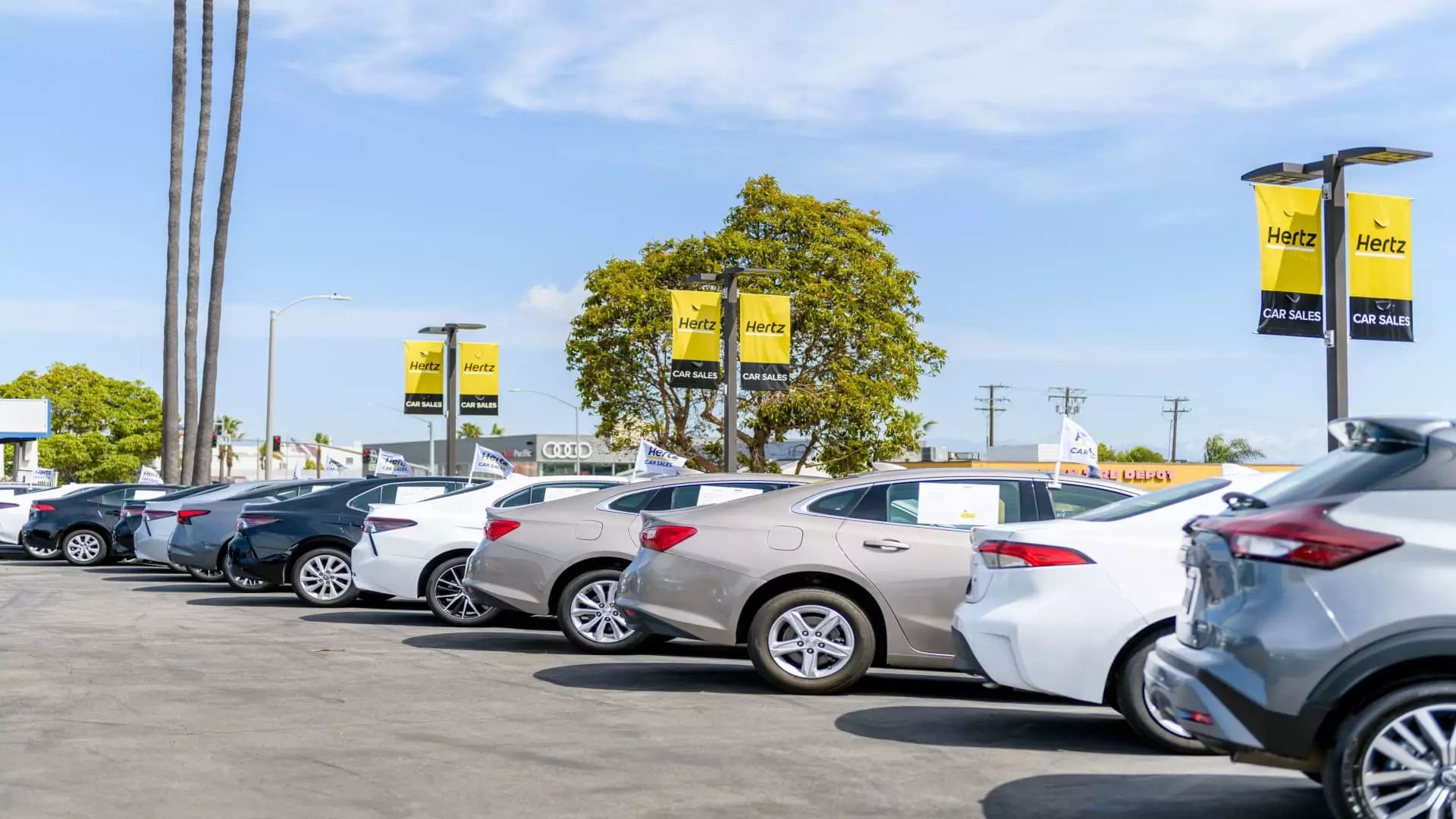Hertz’s decision to sell used vehicles directly through Amazon Autos signals a decisive shift in the traditional car retail landscape. Rather than relying solely on physical dealerships and its longstanding rental empire, the company is boldly venturing into digital territory dominated by e-commerce giants. While this move promises increased visibility and potential profit, it also raises critical questions about the future of auto sales and Hertz’s strategic priorities.
This approach, which integrates used vehicle sales into Amazon’s sprawling marketplace, is a recognition that consumers increasingly prefer seamless online shopping experiences. Yet, it also blurs the lines between rental services and retail sales — a daring leap that could either empower Hertz with a broader customer base or dilute its brand identity. The partnership demonstrates a willingness to challenge automotive sales conventions but could also alienate traditional buyers who value personalized dealership interactions.
Innovation or Distraction? The Risks of Rapid Expansion
Hertz’s foray into used car sales via Amazon Autos is more than just a sales channel expansion; it embodies a fundamental reshaping of Hertz’s business model amid recent financial upheavals. After slumping into bankruptcy during the Covid-19 pandemic and experiencing a failed electric vehicle strategy, Hertz has been reassessing its trajectory. Its “Back-to-Basics Roadmap” suggests a focus on fleet management and efficiency; however, this new retail venture indicates an appetite for aggressive innovation.
While Sirius-focused on costs and fleet optimization, Hertz’s partnership with Amazon signals an attempt to diversify revenue streams amid uncertain market conditions. Yet, such rapid diversification could stretch the company’s resources and management focus too thin. Relying heavily on digital channels to sell used vehicles might seem promising, but it could also be perilous if the execution falters or consumer preferences shift once more.
Consumer Empowerment or Corporate Overreach?
One of the most compelling aspects of this strategy is its potential to democratize used car buying. Customers no longer need to visit a dealership; they can browse, compare, and even complete the entire transaction online, all within Amazon’s trusted environment. This democratization aligns with a broader societal desire for convenience, transparency, and control over purchasing decisions.
However, such convenience comes with its own pitfalls. When automating the car-buying process through a global marketplace, the risk of losing the personal touch increases. Consumers may find themselves overwhelmed by options or disappointed by the limited physical inspection opportunities. Moreover, the shift towards online sales could deepen economic divides, favoring tech-savvy or urban consumers while marginalizing those who prefer traditional in-person interactions or lack reliable internet access.
The Broader Implications: Industry Disruption or Regulatory Challenges?
Hertz’s partnership with Amazon Autos could serve as a catalyst for wider industry disruption. By positioning itself at the forefront of digital auto retail, Hertz signals a future where the car buying process might be just as streamlined as ordering groceries or electronics. Yet, this aggressive push also attracts scrutiny from regulators and traditional dealerships who see such moves as undermining established networks and fair competition.
Furthermore, as Amazon’s autos business grows, questions about transparency, pricing fairness, and consumer protection come into focus. Will this digital revolution prioritize consumer interests, or will profit motives overshadow quality and accountability? The balance of power in auto sales could shift significantly, raising concern over consolidations that might stifle competition and variety.
Hertz’s pivot towards online used vehicle sales via Amazon Autos warrants skepticism mixed with cautious optimism. While the strategy embodies modern consumer demands and innovative thinking, it also introduces risks of superficiality, overreach, and industry upheaval. Whether this bold move will redefine car retail for the better or serve as a cautionary tale about unchecked corporate expansion remains to be seen.


Leave a Reply